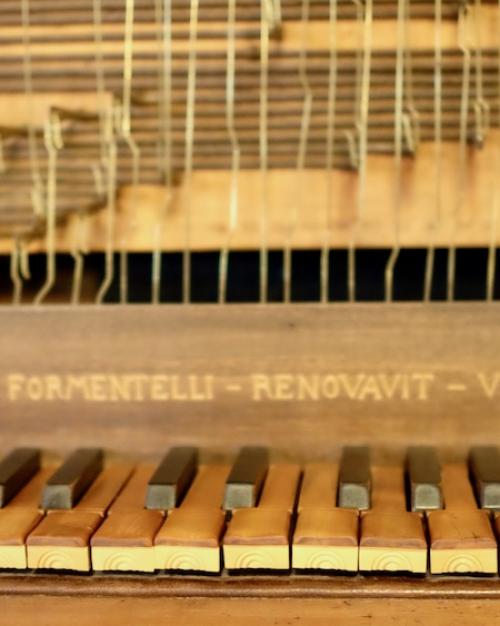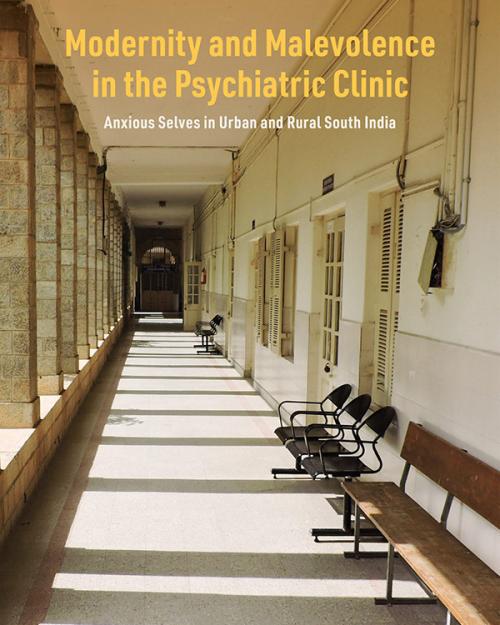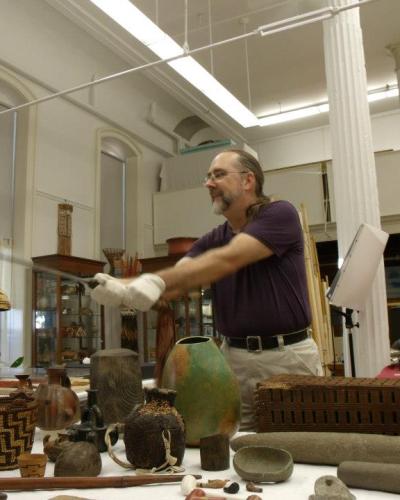Frederic Gleach first came to Cornell as a Visiting Assistant Professor in 1993. After a year teaching in Kentucky, during which he also married Prof. Vilma Santiago-Irizarry, he returned to Ithaca and for 10 years held visiting appointments, sometimes unpaid courtesy appointments, and others part- to full-time Visiting Assistant Professor. During that period, he taught a variety of classes; David Holmberg, then Chair of the Department, referred to Fred as a "utility infielder" for his ability to cover whatever was needed, from introductory courses in archaeology and sociocultural anthropology to upper-level seminars on various topics.
With a long interest in material culture in all its forms, from that first year visiting Fred spent time learning the Anthropology Collections (and did a ground-stone toolmaking demonstration for the Collections open-house for Reunion at the end of that year). In 2005 he was hired (half-time) as Curator of the Anthropology Collections. The first task was to unpack and reorganize the Collections after a period in storage and renovation, and to begin upgrades to the facilities (including air conditioning and ceiling fans, safety panels on the mezzanine railings, and display cases in the first-floor hallway). A number of students worked on these projects as well, including Josh Rosenthal who helped with the unpacking and organization, and Andrew Carruthers who worked on the first exhibit in the hallway cases ("People and Their Stuff"). Another notable later exhibit, in the main display in McGraw 215, was "Small Things Considered" developed with Anjum Malik.
Bringing his research interests in disciplinary history to Cornell, Fred's first exhibit was on the first century of anthropology at Cornell (1870-1970). He also published an article that included departmental founder Lauriston Sharp (on undergraduate anthropology training at the University of Wisconsin in the 1920s), and another on Frank Hamilton Cushing's connection to Cornell – for the latter he found the long-sought stone tools that Cushing collected on a visit to Cornell as a teenager. Many students have learned about the history of collecting and anthropology at Cornell during visits to the Collections.
One of the main functions of the Collections is to support teaching for any faculty whose classes would be served by access to ethnographic and archaeological materials, and over a hundred classes have visited the Collections for one or more sessions where Fred would present different materials and themes as needed. He also regularly has done guest lectures for a variety of classes, in and beyond Anthropology. Through that time, as a half-time appointment, Fred continued to occasionally take on additional teaching as needed by the Department. Beginning in 2017, driven by the desire to actively teach from the Collections, he introduced the first of two new courses, "Meaningful Stuff: Interpreting Material Culture"; the following year debuted "Collecting Culture: Museums and Anthropology". Department chairs had all along been trying to get the position upgrade to full-time and advised not taking on such teaching without being paid for it. In 2020 – while teaching the second iteration of "Meaningful Stuff" – that was approved by the College, and the position is now recognized as a full-time appointment encompassing both the curatorial work and teaching.
In addition to teaching and exhibits on campus, Fred and the Collections have engaged the broader communities in a variety of ways. He collaborated in planning and lent materials to two exhibits at the Tompkins County Public Library, and another at The History Center. Lending and collaborations also have included the Library, the President's office, and the Johnson Art Museum. Because of his range of esoteric knowledge, Fred also regularly consults with the general public and with other institutions on artifact identification and other themes.
Throughout his time at Cornell, Fred has served in different capacities in national and international organizations, adding to the Department's visibility. These include serving as Secretary/Treasurer of the American Society for Ethnohistory, Treasurer and then President of the Society for Humanistic Anthropology and founding co-editor of the Histories of Anthropology Annual series; in 2002 he received the AAA President's Award for work on the centennial commemorations of the American Anthropological Association. He has always encouraged students to be active in such professional activities, to learn about and begin the process of professionalization.
As much as Fred loves the Anthropology Collections and the opportunity to work with such a variety of material culture – "from the Lower Paleolithic to the present", as he likes to say – what stands out most as he approaches retiring are the memories of so many wonderful students over the years. Only a dozen or so have gone on to be anthropologists or archaeologists, but hundreds have taken some anthropology with them into countless different career and life trajectories, and he is proud of each and every one of them.
Fred Gleach did so much for the Department of Anthropology. The Department of Anthropology is grateful for Fred's many years of service and for his outstanding contributions to Anthropology and beyond.





